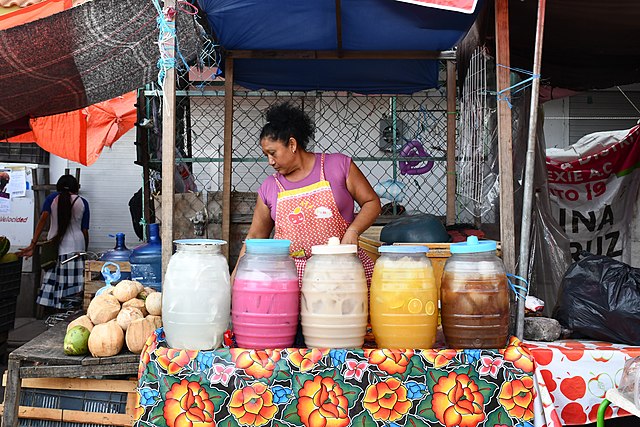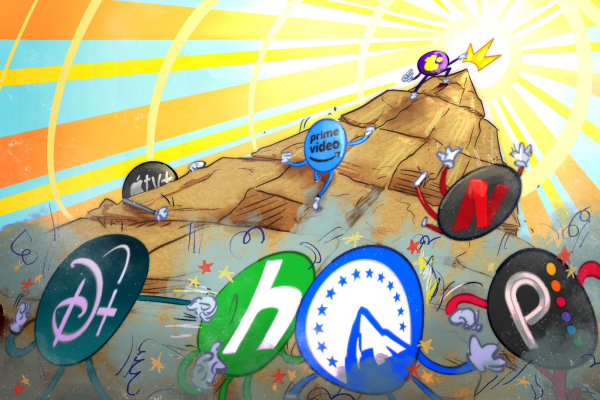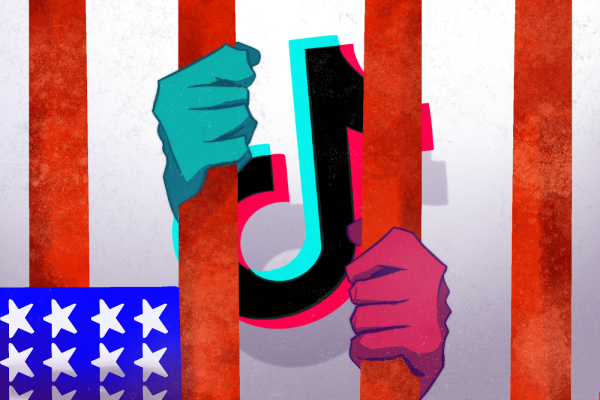Opinion: Keep culture vultures away from our cuisine
How social media influencers are stealing our culture
Social media has made it incredibly easy for people to discover and explore the many cultures of our world at the tap of a button. For the foodies out there, this has made finding cooking recipes a breeze. In fact, studies have shown people of all ages preferred using social media to get inspiration for cooking as opposed to the traditional cookbook (sorry grandma). However, some people have taken advantage of this and hijacked recipes as their own. The result: a cheap knockoff of agua de pepino called “spa water” and many more examples of white content creators appropriating Latinx culture and cuisine.
One platform that has made major contributions to the culinary world is TikTok. The app, owned by Chinese conglomerate ByteDance, has exploded in popularity in the United States since launching in 2019. According to Sensor Tower, as of 2021, 134 million users in the U.S. were on TikTok. The app’s easy-to-use interface and addicting algorithm gives those looking for satisfying food videos or cooking tutorials endless hours of content to scroll through.
As I scrolled through, many dishes that seemed “untraditional” like turtle soup and pork ears came up, however, nothing could prepare for the shock that was to come. Instead, it was a drink by life and beauty influencer Gracie Norton on TikTok who has over 694,000 followers.
The drink, she referred to as “spa water,” was a blending mixture of water, cucumber and sugar. Norton referred to the drink she made as being “anti-inflammatory and packed with antioxidants.”
Spa water – she’s calling agua de pepino “spa water.”
To put it bluntly, this was colonization in the form of cuisine, and it was entirely frustrating that this young white female influencer was able to create content off of showing these dishes while ignoring the history and heritage behind them. Then, with audacity, muting those in the comments who inform them that it is a cultural dish so that they can escape being held accountable or being educated on the matter.
When it clicked in my head what it was she was making, I had stopped scrolling. I sighed and put my phone face down on my desk to recollect myself.
A drink that has been around since the age of the Aztecs in Mexico. A drink that has been enjoyed by Mexican people during the summer time for generations has suddenly been “invented” by a white woman? A random white woman from Indiana, a state that consists of 77.2% white people.
Norton’s “spa water” was not the only incident in which someone outside of a culture was taking credit for “creating” a dish that had cultural ties and significance, and I soon fell down the rabbit hole as I found more “inventive” recipes.
Esquites became “Mexican street corn salad” and blogger Janelle Rohner had her own “secret ingredient” to add, which, in reality, was just Tajin seasoning
Black bean pico de gallo, another dish that traces back to the ancient Aztecs, became “cowboy caviar.” In a more conscious effort to distance themselves from being accused of stealing the idea of the dish and trying to pass it off as “just some trend,” influencer Bria Lemirande added a few extra ingredients such as mangoes, black olives, feta cheese, etc. to make it her own.
Conchas were being called “Mexican donuts.” Tortillas were called “taco sliders,” but the last straw was when horchata, the beloved horchata, was said to be “muddy water.” Influencer Elliana Walmsley referred to it as such and acted as if it was a polluted drink when she visited a Salvadorian owned restaurant.
It becomes problematic when realizing that a good portion of these influencers were verified content creators that have content they could monetize from and with hundreds of thousands to millions of followers. This meant they would most likely be profiting off of taking these dishes and framing them so it appears that they made it themselves.
Even more egregious is the fact that once the name of the dish becomes “Americanized,” it is being advertised by and to white people. From then on, it is seen as a fun social media trend and an “exciting new recipe!”
In contrast, when a local Paletero man who speaks broken English is selling esquites outside of your local Target or the woman who immigrated from Zacatecas is serving agua frescas on the side of the road, they are looked down on, seen as “desperate,” and their businesses face hostility from robbery attempts and government bureaucrats.
A dish being white-washed and marketed by a white person in order to be deemed worthy of respect. It is not acceptable for a non-Latinx person to have monetary gain and popularity from a dish that isn’t theirs while actual Latinx people who sell these same dishes do not receive any of the same credit and are instead seen as pathetic foriegn solicitors.
That’s how Latinx culture is being robbed.














Marcella • Dec 21, 2022 at 6:07 pm
Great thoughts! I do love to cook international cuisine but I would never claim the recipes as my invention. I much rather it have the rich heritage the food and its origins deserve. One interesting fact is that cucumbers originated in Asia, cultivated for thousands of years before making their way to the Roman Empire and beyond. It’s kind of the backward journey of tomatoes, potatoes, corn, and squash.